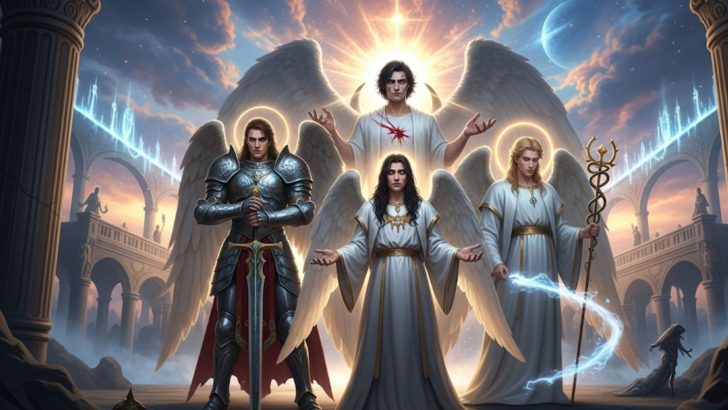The archangels like Michael, Gabriel, Raphael, and Lucifer are often viewed as mighty spiritual warriors or messengers.
But what we rarely explore is their relationship with one another. Think of them less like distant divine figures and more like powerful siblings with unique roles, struggles, and bonds.
Just like any family, there’s tension, love, rivalry, and duty — all amplified by their heavenly positions.
Below are eight fascinating facts that delve into the sibling-like dynamics of the archangels and how their relationships have shaped divine stories that still echo in our imaginations.
1. Archangels Had Shared Missions — But Different Methods
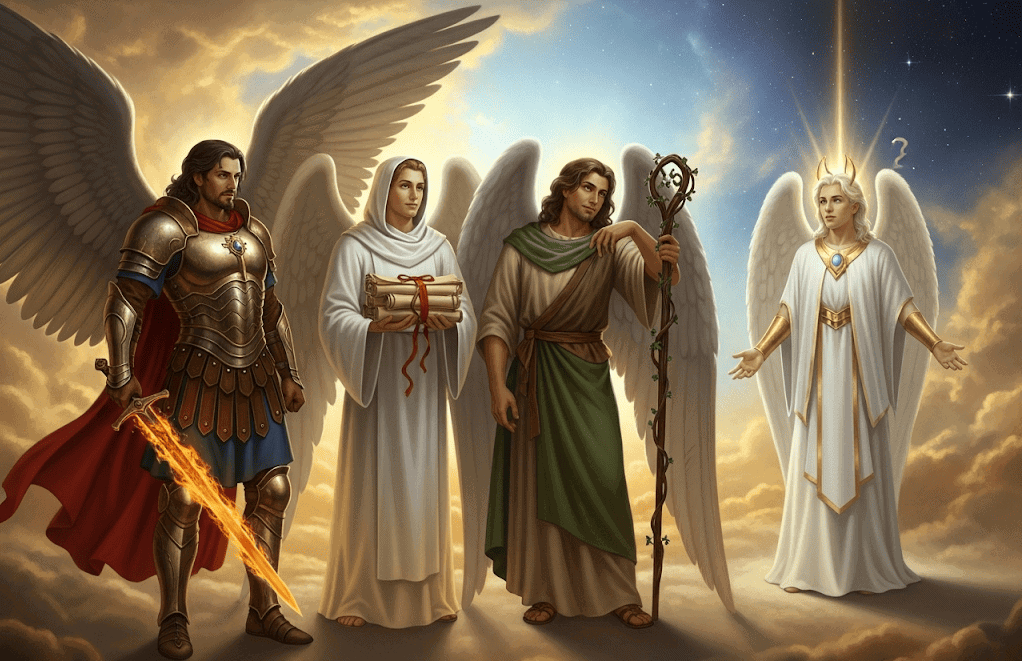
Archangels often had common goals like protecting humanity, delivering divine messages, or fighting evil, but they didn’t always agree on how to do it.
Michael was the sword-wielding warrior, while Gabriel brought messages with grace. Raphael healed and guided quietly, while Lucifer, before his fall, questioned heavenly orders.
These different “personalities” often sparked tension, like siblings who care deeply but see the world differently.
It wasn’t just about power — it was about belief systems. Their dynamics remind us that conflict isn’t always born of hatred; sometimes, it’s a passionate disagreement between those who once stood side by side in purpose.
2. Lucifer and Michael Were Like Light and Fire
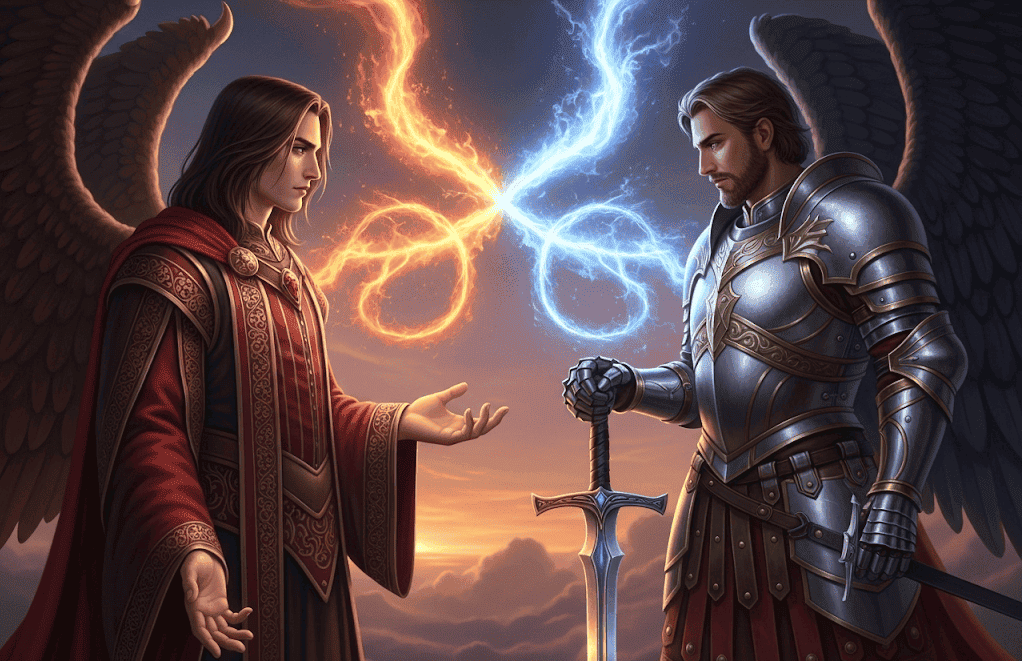
Lucifer and Michael weren’t just fellow archangels, they were the ultimate cosmic contrast. They were a perfect definition of two different worlds.
Lucifer was called the “light-bringer,” often associated with beauty, intellect, and ambition. Michael, on the other hand, embodied righteous strength and unwavering loyalty.
When Lucifer began questioning heaven’s hierarchy, it was Michael who rose to stop him. He wanted to stop him and protect him. He wanted to stay with his brother.
This clash wasn’t born out of simple rebellion. It was like watching a best friend take a different path and realizing you have to stand against him.
Their story is tragic, passionate, and deeply human – the fall of a beloved, and the pain of the one who had to let him go.
3. Gabriel Often Served as the Mediator
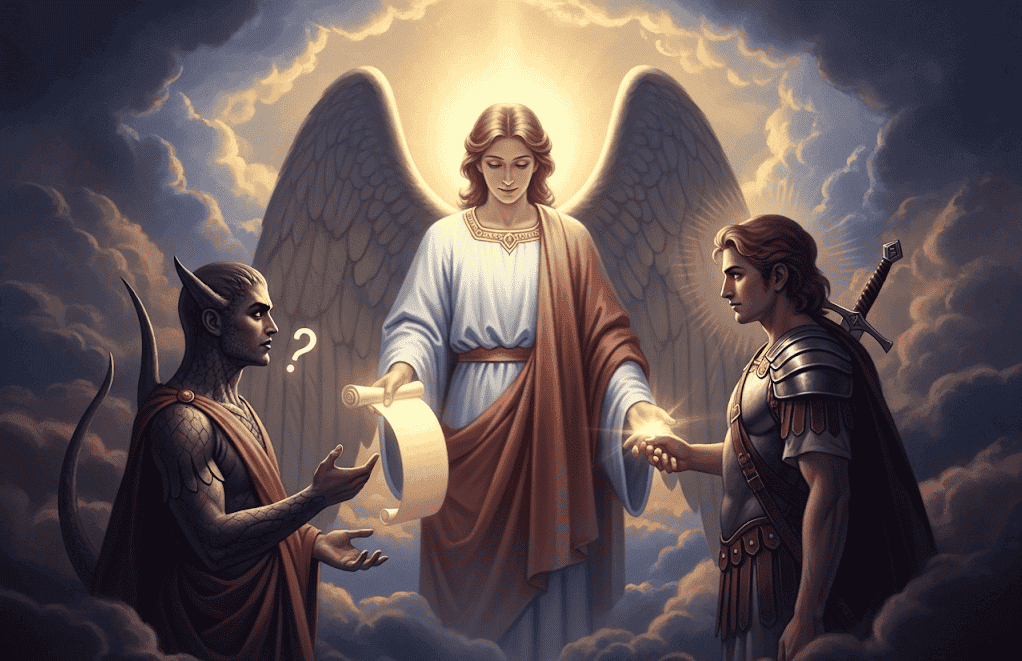
In many stories, Gabriel plays the role of the messenger, but also the calm voice between clashing forces. If we imagine the archangels as divine siblings, Gabriel was the one trying to keep the peace.
When tension grew between Lucifer and the heavenly order, Gabriel was neither a warrior nor a rebel. He was the one delivering the truth with clarity and compassion.
His role shows us that not all power comes from battle. Sometimes, it comes from presence.
Gabriel’s relationship with the others, especially Michael and Lucifer, reflects the middle sibling energy. Always seeing both sides, quietly holding the weight of unspoken emotion.
4. Raphael’s Role Was Healing — But Also Watching
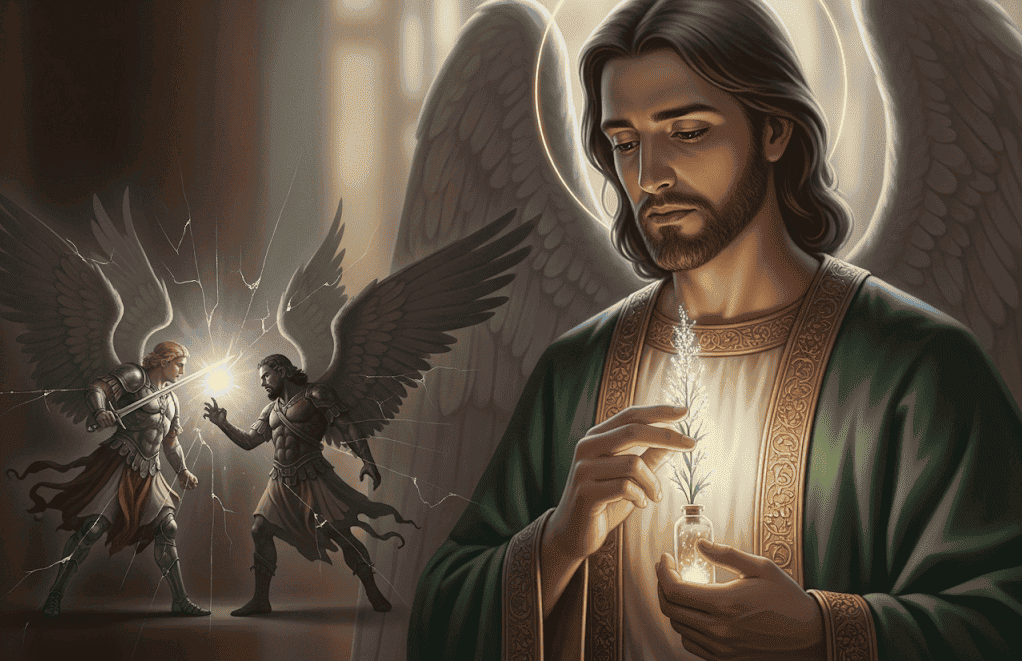
Raphael, the healer, often remained in the background, not due to weakness, but because his role was deeper.
He witnessed the tension, the hurt, and the fractures that formed between his fellow archangels. Like a sibling watching his brothers fight, Raphael couldn’t always stop the battle, but he understood the wounds it would leave behind.
His connection with Lucifer was likely layered: respect, sorrow, and the ache of knowing someone has changed. Raphael reminds us that not every sibling is part of the conflict, but all feel its impact.
His gift of healing wasn’t just for humans. It was also symbolic of the need to mend what divine battles broke.
5. Loyalty Was Tested During Lucifer’s Fall
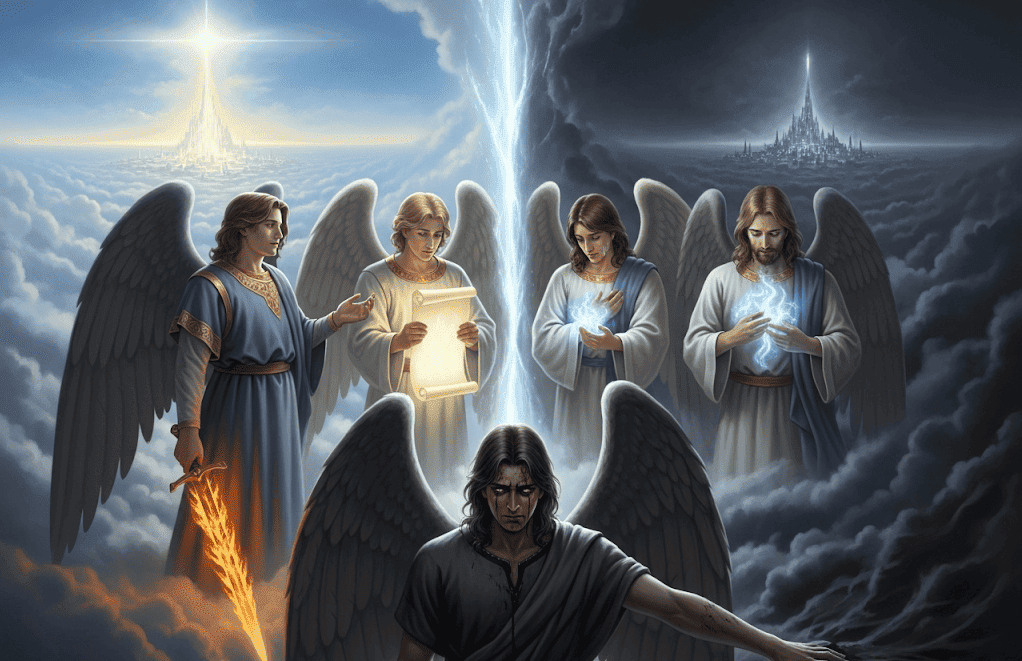
When Lucifer rebelled, every archangel had to choose a side. This wasn’t just a divine war, it was a painful family split.
Michael chose loyalty to heaven. Gabriel chose truth. Raphael chose observation and healing. Lucifer chose freedom, or at least, what he believed to be justice.
The emotional intensity of this moment can’t be overstated. Imagine watching someone you love tear themselves away from everything you shared.
Loyalty wasn’t easy for any of them. Some theologians even say there was grief in heaven, not just judgment. After all, losing a loved one like this is truly devastating.
The complexity of their bond makes the rebellion a heartbreaking moment, not just a punishment tale.
6. Their Roles Were Like Different Branches on One Tree
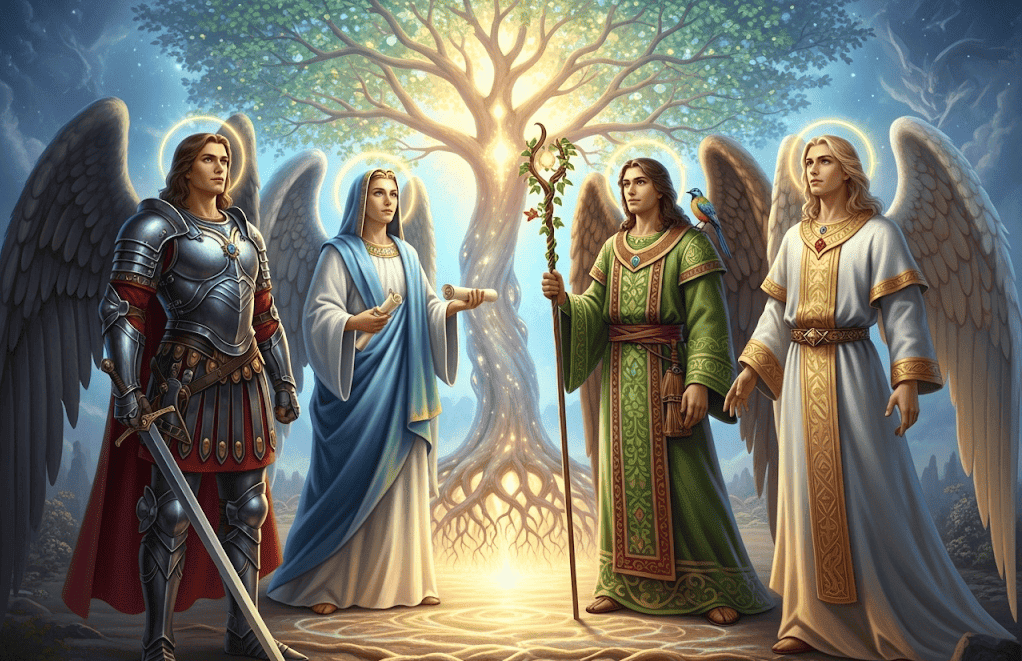
Each archangel had a distinct mission — messenger, protector, healer, bringer of light. Yet they all came from the same divine essence.
Think of them as branches of one heavenly tree, growing in different directions but rooted in the same source. This shared origin makes their eventual conflict even more compelling.
It wasn’t good vs. evil. It was a divergence of purpose, a misunderstanding of intention, a split in vision.
They each believed they were doing the right thing, and that makes the “sibling” story richer, more emotional, and deeply symbolic of how families sometimes fracture while still holding a common past.
7. Love Didn’t Disappear After the Fall
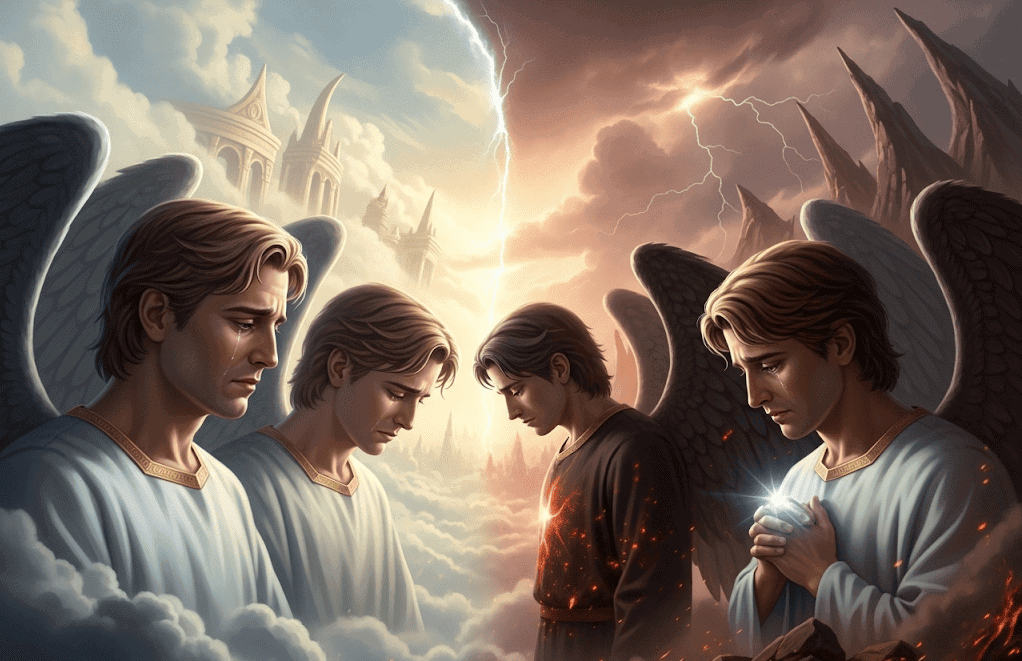
Despite what many stories suggest, love doesn’t vanish with betrayal. Lucifer may have fallen, but that doesn’t mean Michael stopped caring.
Some interpretations suggest that Michael mourned the loss of his brother. The battle wasn’t personal revenge, it was duty.
But that duty came with sorrow. Similarly, Raphael and Gabriel didn’t rejoice in Lucifer’s fall. They witnessed a tragic transformation. The felt like it should be different.
This idea challenges the harsh, black-and-white images of heaven and hell. Instead, it presents a more nuanced truth: that even in the most epic cosmic rift, love lingers. Painfully. Quietly. As a reminder of what once was.
8. They Mirror Our Own Sibling Stories
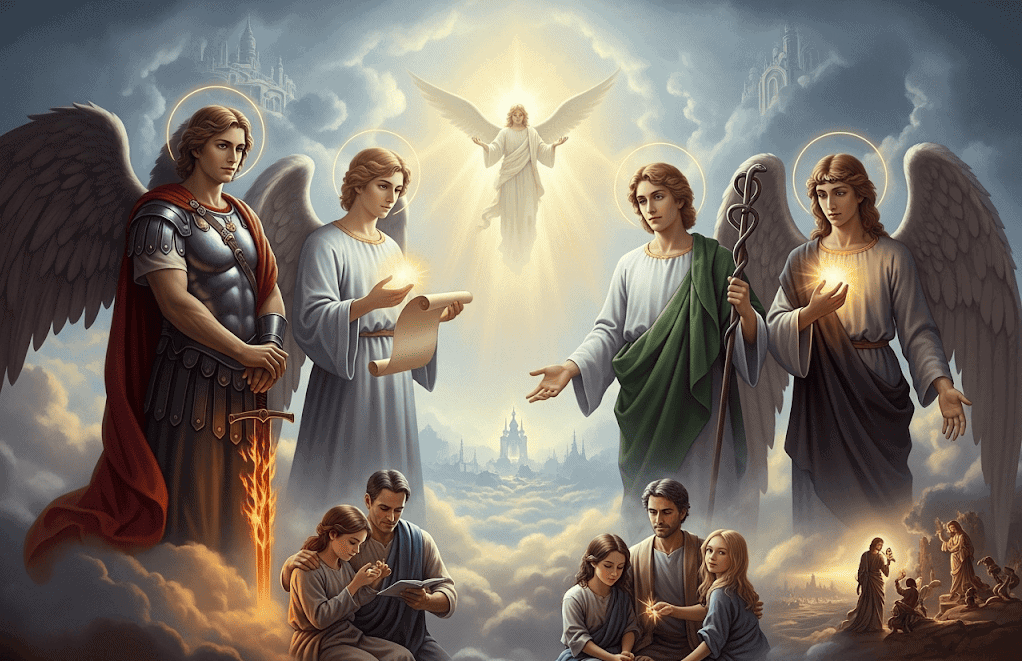
The archangels’ relationships aren’t just ancient tales. They reflect something profoundly human. Sibling rivalries, loyalty tests, heartbreak, healing, and unconditional love.
We see ourselves in them. The brother who strays, the one who obeys, the one who mediates, the one who watches from the edges.
These roles play out in our own families and relationships. That’s why these stories still resonate. The divine drama feels familiar, even if it’s set in heaven.
The complexity of these bonds reminds us that no matter how celestial, relationships are always rich, layered, and sometimes, heartbreaking.

Sempre senti uma forte ligação com o Divino desde o meu nascimento. Como autora e mentora, a minha missão é ajudar os outros a encontrar o amor, a felicidade e a força interior nos momentos mais sombrios.

